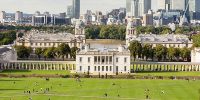

28 November 2024
London, a bustling and iconic metropolis, offers a dynamic lifestyle rich in culture, history, and diversity. Living in London means experiencing a melting pot of cultures, where residents and visitors alike enjoy an array of world-class museums, renowned theatres, and a vibrant arts scene. From its historic landmarks to its modern skyscrapers, London attracts people from all walks of life who are drawn to its unique blend of tradition and innovation.
Despite the city’s high cost of living, the appeal of living in London remains strong. Known for its economic opportunities, extensive public services, and vibrant social scene, the capital offers endless possibilities for growth, exploration, and entertainment. However, the high expenses—especially in terms of housing and daily essentials—mean many new residents need to budget carefully to thrive in London’s fast-paced environment.
The cost of living in London is notoriously high, particularly compared to other parts of the UK. Understanding these costs is crucial for anyone planning a move. For housing, renting a one-bedroom flat in central areas such as Westminster or Kensington can easily exceed £2,000 per month, while a similar property in outer areas like Hammersmith may cost closer to £1,200. Utility bills typically add around £150 to monthly expenses, and internet services cost an average of £30 per month.
Daily expenses add up quickly too. For instance, monthly travel passes for the London Underground, and buses cost around £138 for central zones. Dining out is another expense to consider, with a meal at a mid-range restaurant averaging around £20-£30 per person. Although these costs can be substantial, understanding the budget for essentials will allow prospective residents to plan their lifestyle in advance.
So, how much does it cost to live in London? The answer varies significantly based on lifestyle choices and area. Those in the city centre can expect higher costs for rent, dining, and entertainment, whereas more affordable options are available in suburban zones. For example, a monthly budget of around £3,000 may be needed for a comfortable single lifestyle in central London, covering rent, transport, and groceries.However, it’s important to note that London, as the capital, carries a higher cost of living compared to smaller towns or cities, particularly in terms of rent and everyday expenses like dining and transport. While outer zones can offer some savings, the overall cost of living in London remains higher than in less urbanised areas.
Moving to London involves several key considerations, from securing the right visa (if applicable) to finding a job and choosing a neighbourhood. The city's job market is extensive, with strong opportunities across sectors like finance, tech, and creative industries. Those considering relocating should plan ahead, especially if they require a work visa, which may involve sponsorship from an employer.
Another crucial aspect is finding accommodation. London’s housing market is highly competitive, so it's advisable to start the search early and use multiple platforms, such as Zoopla and Rightmove. Newcomers may also benefit from researching London’s efficient public transport system, which includes the Underground, buses, and Overground trains. Getting an Oyster card or using contactless payment options makes commuting straightforward and helps with budgeting for travel.
Choosing the right neighbourhood is essential for settling comfortably in London. Professionals often gravitate toward areas like Shoreditch, known for its creative scene and lively nightlife, or Canary Wharf, which is home to London’s financial district. Families, on the other hand, may prefer suburban areas like Clapham or Greenwich, offering good schools, green spaces, and community-friendly atmospheres.
Students may opt for affordable and vibrant areas like Camden or Hackney, which are close to universities and popular among younger residents. Finally, Notting Hill, with its colourful houses and market atmosphere, appeals to those seeking a mix of charm and convenience. Each area has its own character, amenities, and community vibe, ensuring options for all tastes and lifestyles.
For those moving to London, finding accommodation can be competitive due to high demand. Popular online platforms like Rightmove and Zoopla are useful tools for locating rental properties, while estate agents can be invaluable for those unfamiliar with the market. Renting is the most common choice, with options ranging from studio apartments to shared houses.
To succeed in the housing market, be prepared to act quickly and submit applications soon after viewing properties. Renters may need to provide references, proof of income, and identification as part of the application process. With diligence and preparation, finding a suitable place to live in London is achievable.
Given the intensity of the housing market, many people opt for an extended stay at the Prince of Wales Frasers while they search for permanent accommodation. Located in the quieter yet well-connected area of Highgate, this serviced apartment option offers a comfortable and convenient base for those looking for flexibility during their relocation. It’s particularly ideal for those who need time to adjust to the city and find the perfect property.
Despite the high cost of living in London, the city remains an attractive destination for those moving to London in search of excitement, career growth, and a multicultural environment. London offers a unique blend of historic landmarks like Buckingham Palace and Big Ben alongside cutting-edge arts and technology hubs, making it a fantastic place to live for diverse interests. Its rich heritage and dynamic social scene contribute to a vibrant, fulfilling lifestyle that draws people from around the world.
London also has extensive green spaces, including Hyde Park and Regent’s Park, offering residents peaceful retreats within the city. However, the busy pace and expenses may be challenging, particularly for newcomers adjusting to urban life. Yet, for those seeking both personal and professional growth, London’s dynamic environment and opportunities are exceptional and unique to the capital.
London's quality of life is influenced by several factors, including healthcare, education, and public services. The NHS provides accessible healthcare, and the city is home to some of the UK’s top educational institutions, from primary schools to world-renowned universities. However, balancing work and life can be challenging in such a fast-paced city.
Residents living in London can enjoy a range of amenities, including efficient public transport, libraries, and sports facilities. Those desiring a slower lifestyle may choose to live in London’s outskirts, where suburban tranquillity meets easy city access. With options for various preferences, London’s quality of life appeals to a diverse population.

Living in London means having access to an array of cultural events and festivals throughout the year, which bring the community together and celebrate the city’s diversity. The London Fireworks display on New Year’s Eve is one of the most anticipated events, drawing thousands to witness an incredible show by the Thames. Secure your fireworks tickets in advance for a prime view of this spectacular event.
Beyond fireworks, the city hosts annual festivals, including the Notting Hill Carnival, Wimbledon, and the London Film Festival. These events showcase the city’s rich culture and provide opportunities for locals and visitors to connect.

Adapting to life in London requires patience and flexibility. The city’s extensive public transport system makes commuting convenient, but peak hours can be crowded. Consider getting a travel card to manage expenses. For socialising, explore local clubs, social events, and networking groups to meet new people and create connections.
London’s extensive public transport network provides convenient accessibility for those living in London, making commutes and city exploration easy and efficient. The city is well-connected by the London Underground, commonly known as the Tube, with multiple lines covering central London and extending to outer zones. Key transport hubs, such as King’s Cross and Victoria, connect to major Tube lines, facilitating rapid travel across the city’s business, shopping, and cultural centres. The Jubilee Line, for example, links popular destinations like Westminster, London Bridge, and Canary Wharf, ensuring quick access to various points of interest.
For those moving to London, the Docklands Light Railway (DLR) serves as a reliable alternative, particularly in East London, connecting areas like Greenwich, Canary Wharf, and Stratford. Additionally, London’s extensive bus network complements Tube and DLR routes, providing 24-hour services in many areas. Buses cover destinations across the city and into surrounding areas, catering to diverse travel needs.
London’s rail network extends beyond the city, making it accessible not only within but also to neighbouring cities and regions. Stations like Liverpool Street and Stratford offer direct train services to Essex, Kent, and other locations, allowing for smooth regional travel. For anyone curious about how much it costs to live in London or considering moving to London, the city’s seamless public transport makes commuting from various neighbourhoods straightforward, which is a significant factor in managing the cost of living in London.
Finding a social circle in London may take time, but the city has a vast range of clubs, events, and cultural activities. From networking meetups to local neighbourhood festivals, there are countless ways to meet new people. Exploring various boroughs also reveals diverse experiences and communities to become part of.

Fraser Residence Prince of Wales Terrace offers a sophisticated, home-like experience for those living in London long-term. Located in the heart of Kensington, each spacious apartment, including luxurious three
and four-bedroom options and an exclusive penthouse, is fully furnished and designed for both comfort and functionality. With dedicated areas for living, dining, and working, the residence combines the convenience of a private home with the warmth of a welcoming retreat, ideal for those looking to settle into London life.
Each apartment is equipped with a fully functional kitchenette, allowing residents to prepare meals with fresh ingredients from nearby markets and grocery stores. Kensington’s vibrant neighbourhood provides access to gourmet shops, charming bakeries, and international cuisine options, offering plenty of inspiration for home-cooked meals. For moments of relaxation, enjoy the views of London’s iconic landmarks through the large windows, a serene backdrop to start or end your day.
The residence features exclusive amenities tailored for long-term stays, including a 24/7 fitness centre complete with cardio and weight equipment, making it easy to maintain your health routine. Complimentary high-speed Wi-Fi and air conditioning add to the comfort, while a dedicated housekeeping team and attentive reception staff ensure every need is met. Our team is available around the clock to assist with everything from local tips to transport arrangements, helping you settle effortlessly into living in London.
Situated in Kensington, Fraser Residence Prince of Wales Terrace offers a prime location to experience London’s highlights, including Hyde Park, Kensington Palace, and world-renowned museums. The residence’s central position also provides easy access to dining, shopping, and transport links, making it a perfect choice for anyone moving to London and looking for a well-connected, comfortable base in one of the city's most desirable neighbourhoods.

Yes, London offers diverse opportunities, a rich cultural scene, and excellent career prospects. However, it can be expensive, and the busy pace may not suit everyone. Many enjoy the city’s balance of excitement and amenities.
Living in London can cost approximately £3,000 per month for a single person, covering rent, transport, utilities, and groceries. Costs vary based on the area, with central locations being more expensive than outer suburbs.
Popular areas include Kensington for luxury, Shoreditch for nightlife, and East Finchley for families. The Prince of Wales Hotel, located in a charming area of Highgate, is ideal for those seeking a more tranquil stay with easy access to central London.
Contact Us
2-14 Prince of Wales Terrace, London W8 5PE
Stay in Touch
Become a member for exclusive offers and latest news.
